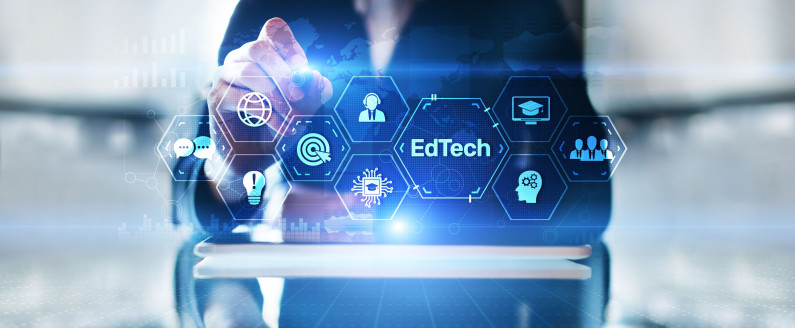Within the start-up ecosystem, the EdTech sector has seen some of the most exciting developments in recent years. From the height of the pandemic to the discourse around ChatGPT etc., Steffi Müller, Senior Communications Director at PIABO, gives an overview of the most critical developments in the EdTech market.
Accelerated by the necessities of the Covid-19 pandemic and promoted by the growing importance of lifelong learning in personal as well as professional life, digital education solutions have repeatedly attracted attention in recent years. And currently, platforms like ChatGPT are raising questions about how AI will permanently change the education sector. The digitization of learning never gets old.
So it’s no wonder that EdTech has attracted the interest of investors in recent years – and continues to do so. Although many of these young companies are currently suffering from difficult economic conditions, the sector is more resilient and stable than others, as Rhys Spence of Brighteye Ventures recently noted on Techcrunch, and reports of (extended) financing rounds such as those of Sdui, Knowunity, evulpo or Easy-Tutor support his assessment. This is not the least because the digitization of education is a highly relevant topic for society. On the one hand, it is about imparting knowledge to the next generations in a new way and making them fit for the future; on the other hand, it is about making knowledge acquisition possible for every individual in a constantly changing world.
But what are the most important developments in EdTech? An overview:
AI changes learning forever
ChatGPT has become the talk of the town, and the education sector is no exception. While some school and university teachers are worried about homework being written entirely with the new trendy tool going forward, others are trying to demonstrate best practices and give examples of how to introduce young people to artificial intelligence. When AI-based technologies such as those from ChatGPT, DeepL or Grammarly are used, it is less a matter of personal creation and more a matter of reflection and optimization. Of course, this will also change the role of the teacher.
The topic of artificial intelligence is nothing new, especially in the school sector, and has been discussed in many contexts for years. However, not much substance has made it to the classroom. Here, EdTechs are showing how it can be done: Many applications and platforms already recognize that each learner absorbs knowledge at his or her own pace and has his or her preferences for what he or she wants to learn. EdTech solutions suggest individual learning paths based on user behavior and also recognize how successful learners are in following those paths. But AI can help not only learners, but also teachers, for example in planning lessons or assessing results.
A good example of this is the Bettermarks platform, an online learning system for math. It allows teachers to assign individual tasks and receive feedback on the progress of individual students or entire classes.
Learning by playing
Gamification is another trend that will continue in 2023 and beyond. Using playful elements to learn in a fun way instead of cramming is exactly what digital education providers like lawpilots are aiming for when they integrate quizzes into their learning paths, for example. An important driver of gamification is the idea of rewards, which loyalty programs also use to motivate their participants to collect points, badges or miles. Who can click the most correct answers? Who will move up the leaderboard? Who can compete better with other participants? All of this and more increases engagement and makes learning more fun. A good example is language learning apps: Babbel teaches language skills through games, Bussuu through unlocking certificates, and Duolingo through collecting points and unlocking levels.
Blended learning
Blended learning is the combination of digital learning and face-to-face instruction. The important thing is that the two forms of learning are combined in a meaningful way. This is why it is also called “integrated learning”. This type of learning is already being practiced in companies as part of targeted training – and not just since yesterday. The term does, however, focus attention on what constitutes a meaningful combination. And there are different models for this.
In schools and universities, the topic of blended learning is more current than ever. After the introduction of digital infrastructures during the pandemic, our educational institutions must now ask themselves how they will continue to use the possibilities offered by learning platforms such as Sdui, iserv or itslearning – now that children and young adults are back in face-to-face classes. Scenarios for meaningful collaboration can and should be discussed and tested. And last year’s takeover of the long-established Studienkreis (and its online tutoring) by EdTech company GoStudent raises the question of how the combination of face-to-face and digital learning will affect the tutoring market in the future. EdTech Edurino shows that blended learning doesn’t have to start at school, college or work. It uses characters that unlock learning worlds in an app to introduce even the youngest children to digital learning. The program is already being used by many daycare centers to complement what is already being taught in the classroom.
The country needs new skills
Today’s business leaders and employees face a wide range of issues and challenges: Digitalization and transformation, sustainability, regulatory issues, potential workforce shortages, and more. Added to this is the discourse on work-life balance, maintaining physical and mental health, and personal development. To meet these challenges, new skills are needed that were not in demand just a few years ago. Here, too, start-ups can help with targeted education.
DeepSkill, for example, offers coaching and e-learning to raise awareness of emotional skills such as empathy and cooperation. At gyde, learning journeys consisting of coaching and e-learning in peer groups focus on increasing one’s leadership potential. At Junto and Masterclass, specialists and managers learn from successful personalities and industry experts. The new forms of digital learning are interesting: microlearning (short learning content), coaching sessions, peer exchange, and customizable learning content and paths. All of this makes teaching new skills a completely new learning experience, and it will be exciting to see which will prove successful and become even more prevalent in our contemporary world of work.


